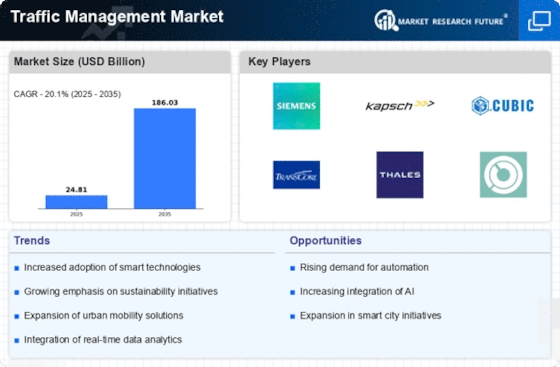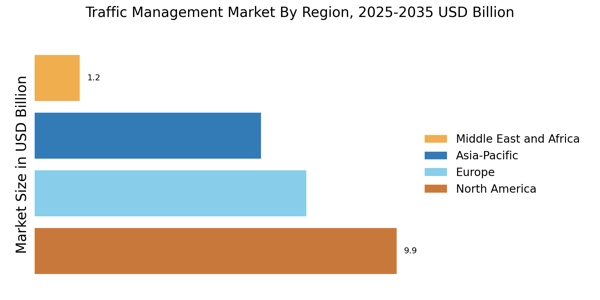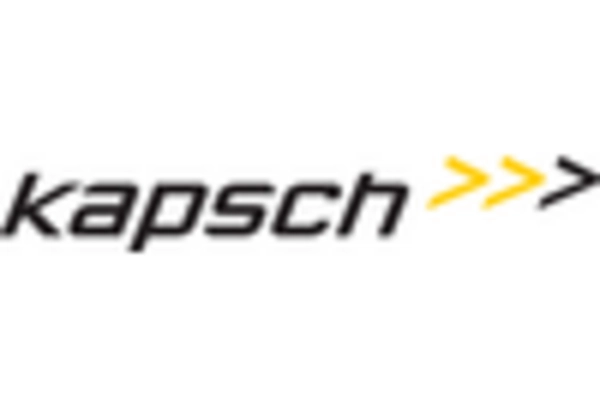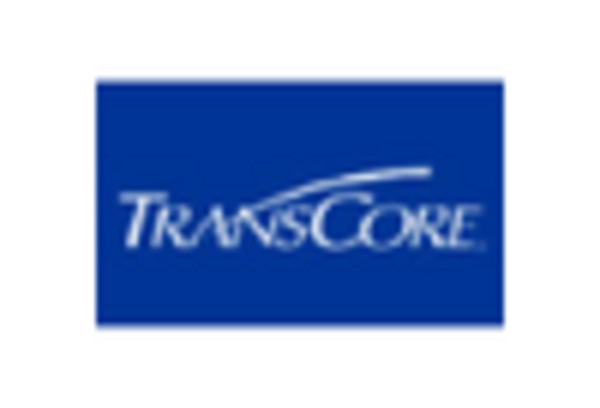Increasing Urbanization
The rapid pace of urbanization is a primary driver of the Traffic Management Market. As more individuals migrate to urban areas, the demand for efficient traffic management systems intensifies. Cities are experiencing unprecedented growth, leading to congestion and increased travel times. According to recent data, urban areas are projected to house over 68% of the world's population by 2050. This demographic shift necessitates the implementation of advanced traffic management solutions to optimize road usage and enhance mobility. The Traffic Management Market is thus witnessing a surge in demand for technologies that can effectively manage the complexities of urban traffic, including real-time monitoring and adaptive signal control systems.
Technological Advancements
Technological advancements play a crucial role in shaping the Traffic Management Market. Innovations such as artificial intelligence, machine learning, and the Internet of Things (IoT) are transforming how traffic is monitored and managed. These technologies enable real-time data collection and analysis, allowing for more efficient traffic flow and reduced congestion. For example, the implementation of smart traffic signals that adapt to real-time traffic conditions can significantly enhance road efficiency. The Traffic Management Market is expected to grow as these technologies become more prevalent, with market projections indicating a compound annual growth rate of over 10% in the coming years.
Rising Environmental Concerns
Rising environmental concerns are increasingly driving the Traffic Management Market. As awareness of climate change and air pollution grows, there is a pressing need for sustainable traffic management solutions. Cities are seeking to reduce their carbon footprints by implementing systems that promote public transportation and reduce reliance on personal vehicles. The Traffic Management Market is responding to this demand by developing solutions that facilitate eco-friendly transportation options, such as bike-sharing programs and electric vehicle charging stations. This shift towards sustainability is likely to influence future investments in traffic management technologies.
Integration of Autonomous Vehicles
The integration of autonomous vehicles is poised to revolutionize the Traffic Management Market. As self-driving technology advances, there is a growing need for traffic management systems that can accommodate these vehicles. Autonomous vehicles require sophisticated communication with traffic management systems to ensure safety and efficiency on the roads. This integration presents both challenges and opportunities for the Traffic Management Market, as it necessitates the development of new protocols and technologies. The potential for reduced traffic accidents and improved traffic flow could lead to significant market growth as these vehicles become more commonplace.
Government Initiatives and Regulations
Government initiatives aimed at improving transportation infrastructure significantly influence the Traffic Management Market. Various countries are investing in smart city projects and traffic management systems to enhance road safety and reduce congestion. For instance, regulatory frameworks are being established to promote the adoption of intelligent transportation systems (ITS). These initiatives often include funding for research and development, as well as incentives for municipalities to implement advanced traffic management solutions. The Traffic Management Market is likely to benefit from these regulations, as they encourage the integration of innovative technologies that improve traffic flow and safety.
















